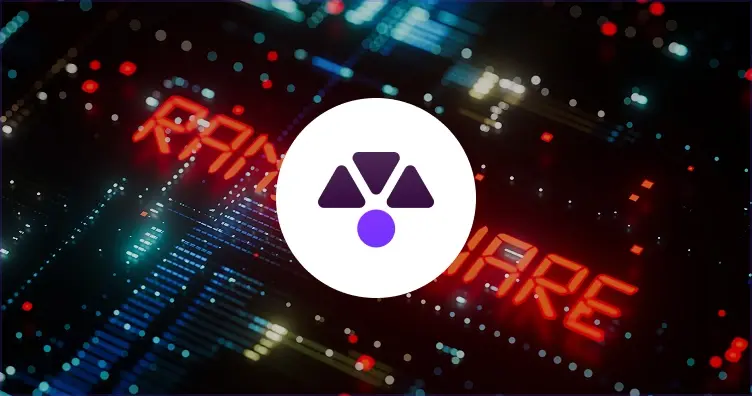AI is truly taking the world by storm. It enables businesses improve their decision making, increase their efficiency, and gain valuable insights from vast amounts of data. From HR to supply chain management, all areas of a business can benefit from the versatility and adaptability of AI and automation.
Unfortunately, the same goes for cyber criminals. The techniques used to attack enterprise systems and networks are constantly evolving, with hackers making use of sophisticated techniques and exploiting new vulnerabilities. In particular, criminals have introduced automation, allowing them to scale their attacks, stay undetected, and quickly leverage vulnerabilities with ease.
Security professionals now find themselves contending with AI-powered hacking tools that can make decisions in milliseconds. Automated attacks are carried out at rapid pace, and often employ sophisticated evasion techniques to remain undetected. They place security teams on the back foot, exploiting even the slightest human error to wreak havoc on an organisation’s entire IT network.
We’ve all seen how automation and AI can be an effective way to increase business efficiency and reduce costs. It also plays an unparalleled role in reinforcing cyber security defences, enhancing threat detection and response capabilities and enabling a proactive defence against evolving cyber threats. Lets take a look into why:
The challenges faced by traditional cyber security
Advanced cyber threats
Due to their sophisticated nature and ability to evade traditional security measures, advanced cyber threats present a significant challenge for security teams. Leveraging advanced techniques such as polymorphic malware, new zero-day exploits, and automation, they are extremely difficult to detect and mitigate with traditional methods. They often operate stealthily, concealing their activities amidst legitimate traffic and adapting their tactics to exploit weaknesses in security defenses.
Combating advanced cyber threats demands constant vigilance, collaboration, and staying one step ahead, placing immense pressure on security teams to protect critical systems and data.
Tight budgets
The current economic environment is challenging, to say the least. IT departments are feeling budget pressure like never before, and to make things worse advanced cyber threats are typically deployed by well-funded and organised threat actors, including nation-states or highly skilled hacking groups. These hackers are motivated, innovative, and successful – this year Clop are expected to earn between $75 and $100 million from their recent extortion campaign that targeted a vulnerability in the MOVEit managed file transfer service. Security teams need to ensure that their security strategy is optimised while successfully managing increasingly tight finances.
Skills gaps
Globally, cyber security is suffering a massive skills shortage. Despite the number of vacancies dropping to 2.72 million in October, the talent gap actually grew. Security managers and executives are finding it increasingly challenging to protect their company’s infrastructure with the available staff, and even though they need more there’s nobody available to hire.
The benefits of introducing automation into your cyber security strategy
Introducing AI and automation into a cyber security strategy is an incredibly powerful way to mitigate all of the above challenges, and more.
Faster threat detection
Introducing automation into your SIEM strategy can provide you with immediate threat detection, collecting and analysing vast amounts of data quickly and in real-time. It introduces machine learning, identifying patterns, anomalies, and potential security threats to enable the SIEM to recognise new attack vectors and zero-day threats that traditional systems may miss. This simultaneously reduces false positives, enabling an IT team to focus on the genuine threats.
Faster incident response
The longer a cyber criminal is in your network, the higher the chance that they will be able to manipulate vulnerabilities and escalate the attack. A fast response is critical to mitigate any potential damage and minimise disruption and downtime. In the long term, it also allows security teams to identify an attack’s root cause, and put measures in place to prevent a reoccurrence.
A quick response also helps to build trust – it ensures compliance to regulatory requirements and demonstrates commitment to safeguarding sensitive data and assets.
Cost effective
Incorporating automation into cyber security is also a cost efficient strategy. It streamlines and optimises multiple processes, and reduces the reliance on manual work, freeing up time and resources to focus elsewhere.
It also greatly mitigates the financial risk of a data breach, by improving threat detection and response capabilities. Automation is a great way to proactively defend an organisation in a cost-effective manner, maximising security investments.
Mitigates human error
Reducing the reliance on manual intervention in security events helps businesses with automated security strategies to mitigate the risk of human error. All security measures are consistently applied and executed accurately, as automated systems follow predefined procedures – this improves the reliability and effectiveness of cybersecurity operations. The automation of repetitive tasks also frees up security team members to focus on the strategic aspects of threat analysis and response, reducing the risk of human error.
Mitigates the skills gap
As previously mentioned, an automated security strategy reduces the need for human cyber security staff. Automated systems can handle routine tasks, analyse vast amounts of data, and even make real-time decisions based on predefined rules and algorithms, reducing the burden on the limited number of skilled professionals. They also often come with user-friendly interfaces and intuitive dashboards, making it easier for non-security professionals to manage and monitor security operations effectively.
By closing the skills gap through automation, organisations can maintain a robust security posture without solely relying on a small pool of highly skilled cybersecurity experts.
Embracing automation in a security strategy
The benefits of incorporating automation into a cyber strategy are clear. It optimises resources, costs, and security, mitigating many of the key challenges that currently face cyber security professionals and ensuring that organisations' critical assets remain protected in the face of constant, evolving, and advanced cyber attacks.
Cyber Resilience Assessment

Celerity’s Cyber Resiliency Assessment is designed to identify gaps, strengths, & weaknesses against best practice requirements based on the NIST Cyber Security Framework, helping you to understand the risk and maturity level of your environment.
In turn, you’ll be able to create a plan to protect your business and streamline your data security processes, with a customised cyber resilience strategy that is fitted to your vision and mission.
Download the brochure here, or get in touch with us to learn about this free evaluation of your data protection strategy.

 Cyber Recovery
Cyber Recovery



